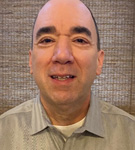Internationally, with the consumer demand for “natural” colors increasing, some food manufacturers are turning away from synthetic color additives and towards those from plant extracts or other natural sources. This free one-hour webinar provides briefings that speak to key potential safety hazards affecting sourcing and analytical challenges. Originally aired March 2, 2021.
Internationally, with the consumer demand for “natural” colors increasing, some food manufacturers are turning away from synthetic color additives and towards those from plant extracts or other natural sources. Under current US regulation, color additives fall into two categories: those subject to FDA’s certification process, which include synthetic color additives and are tested by the FDA, and those that are exempt from certification, in which it is up to manufacturers to comply with specifications.
From a quality and safety perspective, identity and purity specifications for colors from natural sources are not as well defined or monitored as FDA certified colors, which increases the risk of adulteration. Natural colors also have regulatory requirements for the crops that produce the colors and are covered under FSMA Preventive Controls and Produce Safety Rules. These regulations require control measures to ensure the hazards identified in the risk assessments have been addressed. Consistent industry‐wide safety standards are needed to address the manufacturing, processing, application, and international trade of colors from natural sources to ensure quality and safety throughout the supply chain. Methods for microbiological contamination, heavy metals, pesticides, and unauthorized solvents are some of the means to establish these standards. This webinar provides briefings that speak to key potential safety hazards affecting sourcing and analytical challenges.
U.S. Food and Drug Administration Center for Food Safety and Applied Nutrition

Dr. Bhakti Petigara Harp has been with FDA’s Center for Food Safety and Applied Nutrition (CFSAN) as a research chemist since 2000. Her current responsibilities include research and methods development for color additives and other components using various analytical techniques for the agency’s color certification program. She also is a technical expert and troubleshooter supporting the FDA district laboratories in regulatory actions concerning the analysis of atypical samples of food, drugs, and cosmetics containing organic color additives. In addition, Bhakti performs chemistry reviews of data establishing chemical identity, composition, stability, and manufacturing of color additives submitted in support of color additive petitions. She has served as a volunteer in two AOAC working groups and communities.
Sensient Technologies Corporation

Mark Goldschmidt is the Vice President of Quality and Product Safety at Sensient Technologies Corporation, a leading global manufacturer and marketer of colors, flavors, and fragrances. Sensient employs advanced technologies to develop specialty food and beverage systems, cosmetic ingredients, pharmaceutical excipients, inkjet and specialty inks and colors, and other specialty and fine chemicals. His primary responsibility is to establish global quality and product safety standards for Sensient Technologies. Mark has held roles in Quality Control, Quality Assurance, Regulatory, Process and Product Development, Operations, and Quality and Product Safety.
RESTEK Corporation

As RESTEK’s Business Development Manager for the global food & agriculture market, Joe Konschnik applies his 38 years of analytical chemistry experience toward identifying market needs, new technologies, and product opportunities as well as overseeing technical content development for new workflow solutions. Prior to RESTEK, Joe spent 19 years working for some of the nation’s largest environmental testing laboratory companies as a bench chemist and in technical and laboratory operations senior management roles. Joe has been an invited speaker on sampling and analytical chemistry topics globally. He serves as a volunteer in multiple AOAC working groups and communities in addition to volunteer leadership roles for the Independent Laboratories Institute (ILI), the American Council of Independent Labs (ACIL)’s Food Sciences Section and The North American Chemical Residue Workshop (NACRW).
The Coca-Cola Company

John Clos graduated from the University of Alabama at Birmingham with a Bachelor of Science in Chemistry in 1986. After participating in the summer intern program at Procter & Gamble in Cincinnati, OH, he enrolled at the University of Florida in Gainesville, where he received his Master of Science in 1989 and his Doctor of Philosophy in 1991, both in Analytical Chemistry. He then joined The Coca-Cola Company, where he is currently a Senior Scientist in the Ingredient and Flavor Analytical Group, specializing in HPLC and LC-MS methods development and analysis supporting ingredient research and product development in a wide variety of projects.